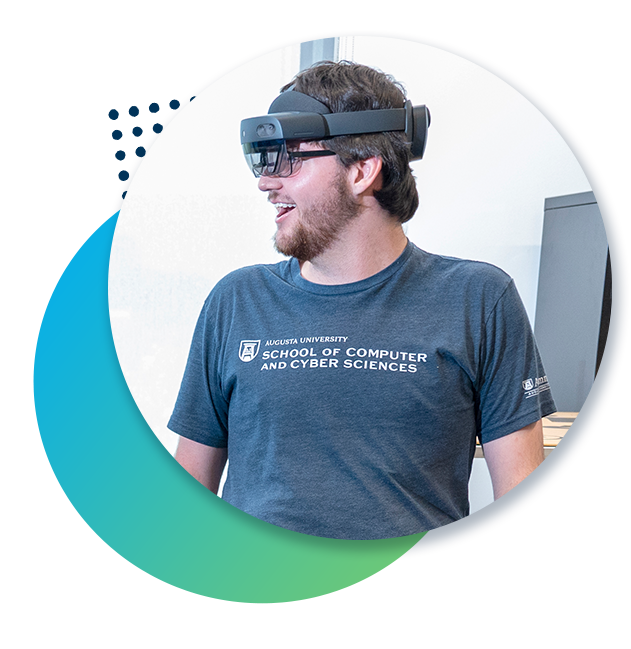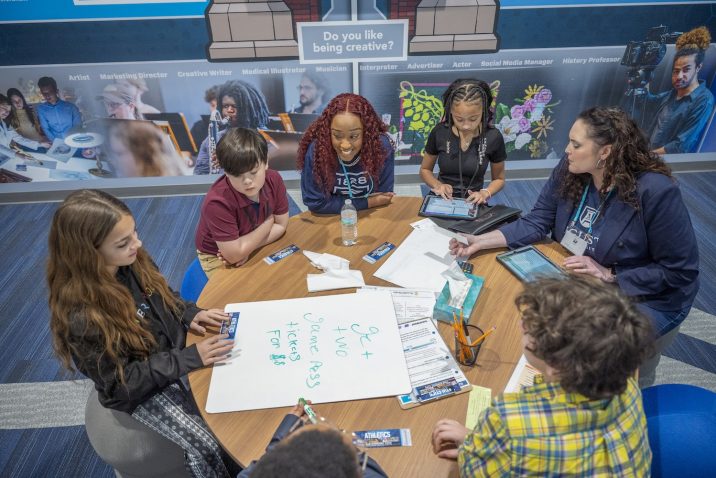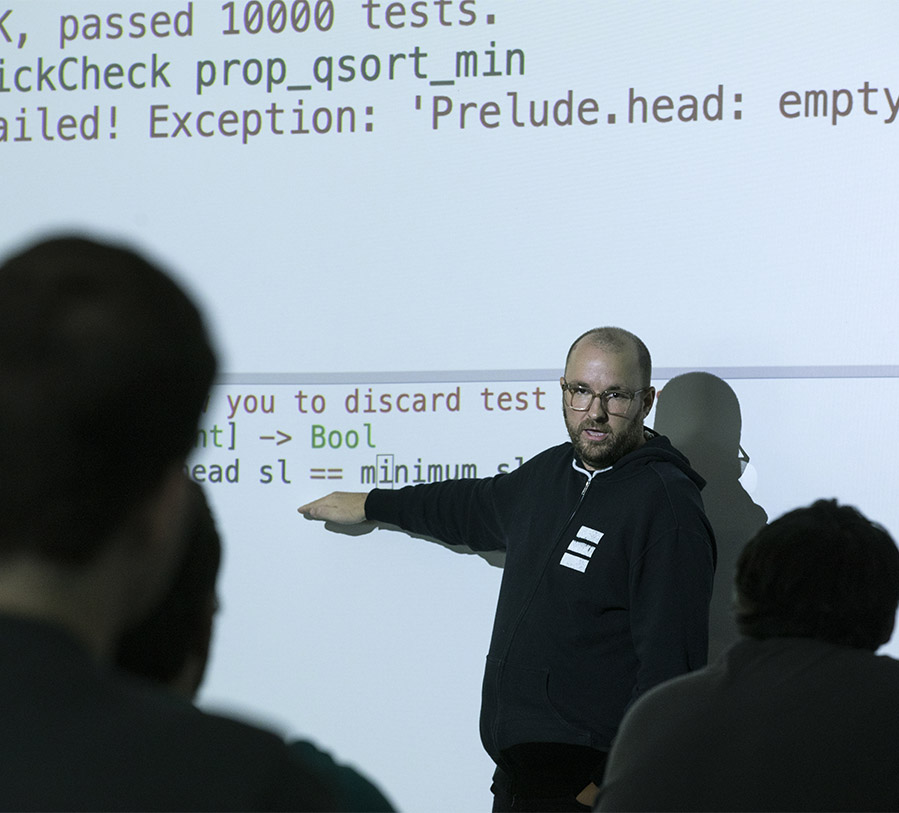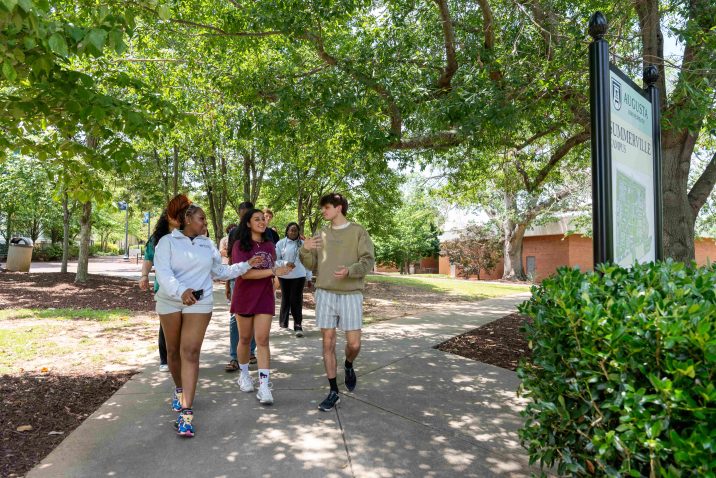Cybersecurity
Are you passionate about defending against cyber threats and ensuring the security of information systems?
The Cybersecurity program at Augusta University is designed to equip students with the skills and knowledge to protect and defend critical infrastructure and sensitive information. This program from the School of Computer and Cyber Sciences prepares students for a variety of career pathways, including roles in cyber defense analysis, incident response, and IT (cyberspace) operations.
Cybersecurity is for you if you consider yourself
Life-Changing
Life-Saving
Education
Want to learn more about the Cybersecurity program at Augusta University?
Request InfoWhat You'll Study
Coursework
In the Cybersecurity program, you’ll study network security, secure software development, and incident response topics. The curriculum aligns with the Department of Defense Cyber Workforce Framework, focusing on work roles such as:
A Cyber Defense Analyst uses data from various cyber defense tools, such as IDS alerts, firewalls, and network traffic logs, to analyze events within an environment and mitigate threats. A Cyber Defense Incident Responder investigates, analyzes, and responds to cyber incidents within the network or enclave. Meanwhile, an IT (Cyberspace) Specialist designs, builds, configures, operates, and maintains IT networks and systems, ensuring their security and functionality.
Experience-based Education
Outside the Classroom
Internships provide hands-on experience and valuable industry connections. Students
have the opportunity to work with leading companies and government agencies, gaining
practical skills and insights into the cybersecurity field.
The Senior Design Project matches seniors with industry sponsors to solve real-world
technical problems. Teams of 3-5 seniors are mentored by a School of Computer and
Cyber Sciences professor and work in collaboration with an engineer or manager from
the agency.
Additionally, students can join the Augusta University cyber competition team, where
they can hone their skills, compete in national and international cybersecurity competitions,
and collaborate with peers on challenging cyber defense scenarios.
Research & Innovation
Whether you’re an undergraduate or graduate student, you’ll have opportunities to create your own research projects or work with faculty to tackle some of the world’s most complex and pressing challenges.
Military Friendly
Our commitment to offering quality, affordable education to service members and veterans is a driving force, and we offer several programs to assist them in achieving their academic goals.
Learning Community
The JAGByte Living Learning Community provides incoming School of Computer and Cyber Sciences freshmen the opportunity to live and study together as a cohort and participate in a variety of exclusive activities.
Clubs & Organizations
Student clubs and organizations help you “plug in” to campus life in a way that can lead to meaningful connections, new interests and resume-enhancing experiences.
Your Future
Career Options
Graduates with a Cybersecurity degree can pursue a variety of different positions, including cybersecurity analyst, cryptographer, malware analyst and penetration tester.
According to the U.S. Bureau of Labor Statistics, Information Security analysts earn a median pay of $102,600 per year, with job growth at 33%.

Why Augusta?
Proximity to industry experts at the 332,000 sq. ft. Georgia Cyber Center increases internship and networking opportunities by putting you shoulder-to-shoulder with professionals in the field.
As a designated Center of Academic Excellence in the area of cyber defense, Augusta University is home to the Center for Cybersecurity.
Student activities like the Cyber Defense Team and the Upsilon Pi Epsilon honor society give students opportunities to network with their peers as well as put their skills to the test in hacking competitions.




